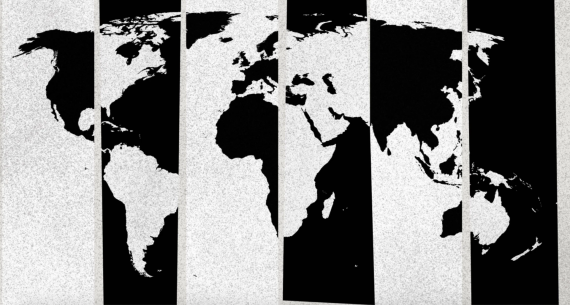What We're Reading This Week

Joshua Milstein
Christoph Schneider, "Concrete Metaphysics and the Visual Image", Los Angeles Review of Books
Review of a new monograph on the aesthetic philosophy of the Russian intellectual Pavel Florensky. With other members of the Russian Religious Renaissance, which flourished in the decades before 1917, Florensky sought to ground Western philosophical concepts on Orthodox theological concepts. Florensky’s intellectual output, including his aesthetic theory of the symbol, is a bracing example of the translation of globally circulating concepts into local conceptual vocabularies.
Democracia Abierta, "Separate but equal: the historical roots of the current US protests", Open Democracy
The deaths of black men at the hands of police are events that need to be contextualized within a long history of structural racism in the United States. Inequalities in health, wealth, and policing are the results of original failures of enfranchisement and of systematic dispossession over time. This article from Democracia Abierta paints a picture of a history of failure, and argues that the perceived wrongs of toppling monuments to the racist past are trivial in comparison to the vast inequalities, past and present, between white and black people in America.
Ruben Verkoelen, "The Concept as a Struggle of Parts", Journal of the History of Ideas Blog
Blog post joining voices promoting a model of conceptual history emerging from the history of the French philosophy of science. The author suggests that changes “within” the concept, and the arrangement of “parts” within the concept, can be conceived with the help of the anatomist Wilhelm Roux’s concept of a “struggle of parts” within an organism. This would provide us both with a flexible model to understand how different component parts of a given concept may appear newly arranged, or assume different emphases at different times; and a view of a concept as an intrinsic struggle of different parts, rather than a monovalent unit.
Sean Phillips
Kelebogile Zvobgo & Meredith Loken, 'Why Race Matters in International Relations', Foreign Policy
In a brief sketch of the disciplinary history of international relations (IR) and a commentary on the disciplines current establishment, the authors make the case that scholars of IR do not take race seriously despite its embeddedness underlying its guiding paradigms.
Ruth Gamble & Alexander Davis, 'The Big Lesson of the India-China Conflict: Borders Don’t Work at High Altitude', The Diplomat
In light of recent violent clashes at the contested India-China border, the authors argue that "non-territorial approaches, which can manage the environment and better serve Indigenous peoples" are necessary step toward peace at this long contested international border in the Himalayas.
Emily Manktelow, 'It’s statues that edit the past—not their removal', Prospect Magazine
In this short piece, Manktelow offers a corrective (focused upon the recent British context) to an oft-repeated claim that the removal of public monuments equals the erasure of history.
‘Pandemic Internationalism: What is Internationalism in 2020?’, The Centre for the Study of Internationalism
What does internationalism mean today? and how can the study of internationalism make sense of our world? A cast of leading scholars in the field of the history of internationalism respond to some of the fields core concerns in a series of short, home-recorded reflections.
Debora Diniz & Giselle Carino, 'The death of the future: Covid-19 among Brazil’s indigenous peoples', El País
This short article chronicles the tension between the premiership of Bolsonaro and the Brazil's indigenous communities (and their plight) during the pandemic.
Sam de Schutter
Hugo Slim, Is racism part of our reluctance to localise humanitarian action?, Humanitarian Practice Network
Hugo Slim reflects on the role of racism in the ‘systemic reluctance’ to transfer power and funding to local actors in humanitarian practices.
Transnational African feminisms, Africa is a Country
Rama Salla Dieng interviews Annette Joseph-Gabriel, author of Reimagining Liberation: How Black Women Transformed Citizenship in the French Empire, and Mame Fatou-Niang, director of the 2016 documentary Mariannes Noires. They reflect on the historical and present-day role of francophone African women in pan-African liberation, on the intersections of feminism and liberation, and on Black French identity.
Ismay Milford, Boloki Chango Machyo W’Obanda (1927-2013), East Africa’s Global Lives
Ismay Milford traces the biography of Boloki Chango Machyo W’Obanda, a Ugandan public intellectual and explores his trajectory 'between East African pan-Africanism and local politics’.